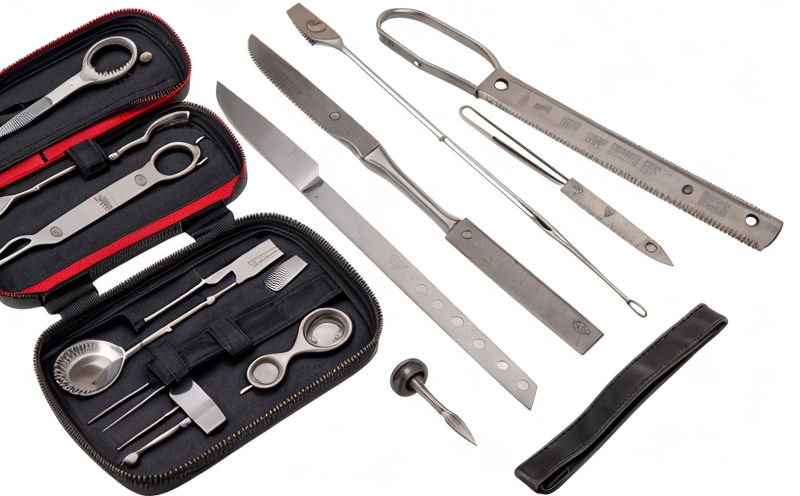ISO 10993-11 Systemic Toxicity Testing for Surgical Tool Materials
The ISO 10993 series of standards provides a comprehensive framework for ensuring the safety and biocompatibility of medical devices. Among these, ISO 10993-11 specifically addresses systemic toxicity testing, which is critical for assessing potential adverse effects that may arise from exposure to materials used in surgical instruments and tools.
Systemic toxicity refers to the potential for a substance to cause harm when it enters the bloodstream or other body tissues. For surgical instrument manufacturers, this test is essential because even small quantities of harmful chemicals could pose significant risks during surgery where the patient's blood and tissues are exposed directly to the tool.
The testing process involves extracting leachable substances from the material using a biocompatibility test solution, typically phosphate-buffered saline (PBS) under static conditions. The extract is then administered intravenously to laboratory animals according to the protocol specified in ISO 10993-11. Toxicity endpoints measured include general systemic toxicity and organ-specific effects.
Understanding these potential risks early in product development ensures that any necessary modifications can be made before clinical trials or market release. Compliance with this standard not only protects patients but also enhances the reputation of manufacturers who prioritize safety above all else.
This testing process is part of a broader approach to ensuring the overall biocompatibility and safety of surgical instruments, which includes other tests such as cytotoxicity (ISO 10993-4), irritation potential (ISO 10993-10), and sensitization potential (ISO 10993-11). Together, these tests form the foundation for regulatory approval processes worldwide.
| Application | Description |
|---|---|
| Surgical Instruments | Instruments like scalpels, forceps, and clamps that come into direct contact with blood or tissue. |
| Endoscopic Tools | Devices used in minimally invasive procedures where they enter the body through small incisions. |
| Dental Instruments | Tools such as dental drills and extraction instruments. |
| Orthopedic Implants | Devices that are implanted within the body, e.g., hip or knee replacements. |
Why It Matters
The importance of systemic toxicity testing cannot be overstated in the medical device industry. A single incident involving a surgically implanted or used tool with undetected toxic substances can have severe consequences, including immediate health risks to the patient and long-term implications for the manufacturer's reputation.
From an ethical standpoint, ensuring patient safety is paramount; from a business perspective, compliance with standards like ISO 10993-11 helps avoid costly recalls and legal challenges. Additionally, meeting these requirements is often necessary to gain approval from regulatory bodies such as the FDA (United States), MHRA (United Kingdom), or the TGA (Australia).
The test results provide critical data that informs decisions about material selection, design modifications, and manufacturing processes. By identifying potential issues early on, companies can implement corrective actions before they become problematic.
Why Choose This Test
- Compliance with international standards like ISO 10993-11 ensures that your products meet global regulatory requirements.
- Predictive results help guide material selection and design improvements to enhance product safety.
- Reduces the risk of adverse events during clinical trials or post-market use.
- Avoids potential delays in obtaining necessary approvals from regulatory agencies.
- Safeguards your brand reputation by demonstrating a commitment to patient safety.
- Supports continuous improvement initiatives aimed at enhancing product quality and reliability.





